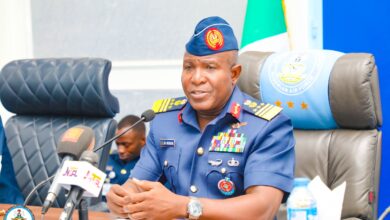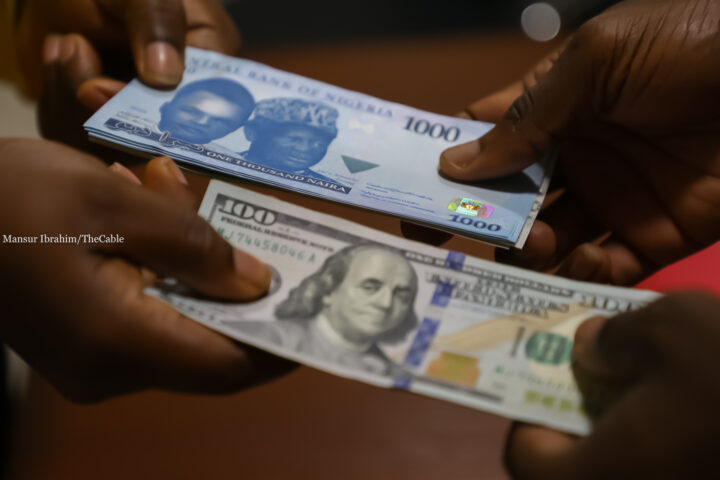How could US-China rivalry in Africa play out under Trump 2.0?

President-elect Donald Trump talked tough on China during his campaign, vowing to impose higher and sweeping tariffs on imports from the Asian giant. Beijing will now also be closely watching the incoming administration’s movements further afield, in Africa, where U.S.-China rivalry is high.
Experts disagree on what a second Trump term will mean for Beijing’s ambitions on the continent, with some saying it could be a boon for China – Africa’s biggest trade partner – if the U.S. pursues an isolationist, “America First” agenda that mostly ignores the region.
But Tibor Nagy, who served as Trump’s Assistant Secretary of State for African Affairs from 2018 to 2021 has a different perspective. He said Trump grasped how powerful a player China had become on the continent.
“It was the Trump administration that was the first to kind of recognize the existential threat that China poses,” Nagy told VOA.
“We were on the front lines of that in Africa, and we saw what the Chinese were doing,” said Nagy, who also served as the U.S. ambassador to Guinea and Ethiopia during the administrations of presidents Bill Clinton and George W. Bush.
Nagy told VOA he does not think the incoming Republican administration will neglect Africa because it sees China as a threat to U.S interests there. He also said the continent is a major source of critical minerals attractive to both superpowers.
Nagy credits the first Trump administration with introducing policies on the continent intended to counter China’s influence.
“We had … the right focus because we made it about the youth. You know, our premise was that Africa is going to be undergoing a youth tsunami with the population doubling by 2050. And that more than anything, what the youth really wanted was jobs,” he said.
To this end, Nagy says, the first Trump administration set up Prosper Africa in 2018, an initiative designed to assist American companies doing business in Africa, and he expects the incoming administration will remain engaged there.
“Africa remains very much the front lines,” he said. “The United States is extremely concerned about our strategic minerals, and when a hostile power has a lock on strategic minerals, that’s really not very good when you need the strategic minerals for your top-end technology and for weapon systems.”
But Christian-Geraud Neema, Africa editor for the China-Global South Project, is skeptical and said a second term for Trump could be an opportunity for Beijing.
“Looking at his first term, Trump didn’t show much interest in Africa, which is likely to be the case still now,” he told VOA. “Only a few countries will matter — countries whose resources or position matter to the U.S. national security interests.”
“China will have room to maneuver and increase its influence in so many ways,” he added.
Yun Sun, director of the China program at the Stimson Center, echoed this.
“I doubt that Africa will be a featured priority for Trump,” she told VOA in an emailed response, adding that the United States’ absence on the continent “will boost the prominence of the Chinese position by its presence.”
Lobito corridor future
Views on how successfully President Joe Biden’s administration has engaged with Africa are also mixed. Many analysts said regardless of whether the Democrats or the Republicans are in office, the continent is usually an afterthought in U.S. foreign policy, which does not differ much from one administration to the next.
The current administration said it was “all in on Africa,” when Biden hosted dozens of heads of state at his first African Leaders Summit in 2022, an event seen as an attempt at reasserting U.S. influence in the face of a rising China.
Yet, “African leaders or the African Union were not consulted about the agenda of the 2022 US-Africa Leaders Summit. This was also the case with the US’s Africa strategy,” wrote Christopher Isike, the director of African Centre for the Study of the United States at the University of Pretoria, in an article co-signed by Samuel Oyewole, political science postdoctoral research fellow at the university
While Trump never traveled to Africa as president, top Biden administration officials did visit the continent, including the vice president. Biden is also expected to travel to Angola before the end of his term in December.
Under Biden, the U.S. agreed to develop the Lobito Corridor and Zambia-Lobito rail line, a project described by the State Department as “the most significant transport infrastructure that the United States has helped develop on the African continent in a generation.”
The rail line is seen as part of a transcontinental vision connecting the Atlantic and Indian oceans.
The undertaking is to be financed through a joint agreement calling for the U.S., African Development Bank, Africa Finance Corporation (AFC) and the European Union to support Angola, the Democratic Republic of Congo, and Zambia.
Observers see it as an attempt to compete with Chinese President Xi Jinping’s global infrastructure project the Belt and Road Initiative, which has built railways, ports and roads across Africa.
There is concern among some analysts that Trump could pull back from this.
“Existing bilateral and multilateral business partnerships … such as the Lobito Corridor … might wane significantly during the next Trump administration,” said Oluwole Ojewale, a Nigerian analyst with the Institute for Security Studies, in an email to VOA.
“When that happens China will gain significant mileage in areas where the US Government’s exit creates a vacuum on the continent,” he added.
But Nagy disagreed, saying the Lobito Corridor is the “kind of project which would have come right out of the Trump administration.”
Therefore, there’s likely to be continuity, he added, noting: “The deal is done. Again, I can’t speak for President Trump, or the people who are going to be coming in … but it’s logical.”
‘Other Friends’
When asked how African leaders will navigate the next Trump administration, Sun said they could play the U.S. and China against each other.
“Africa could highlight its role in the US-China great power competition in order to strengthen its position in the US grand strategy,” she said in an email to VOA.
But she is doubtful African leaders will take that route because it “will carry the effect of being forced to choose, which I doubt that Africa will want to do.”
However, at least one African politician has already alluded to this option.
Kenya’s Raila Odinga, who is in the running to take over as chair of the African Union Commission next year, was blunt in his assessment of how African governments would handle a more isolationist U.S. under Trump.
“If he does not want to work with Africa,” Odinga told Agence France-Presse last week, “Africa has got other friends. Culled From VOA





